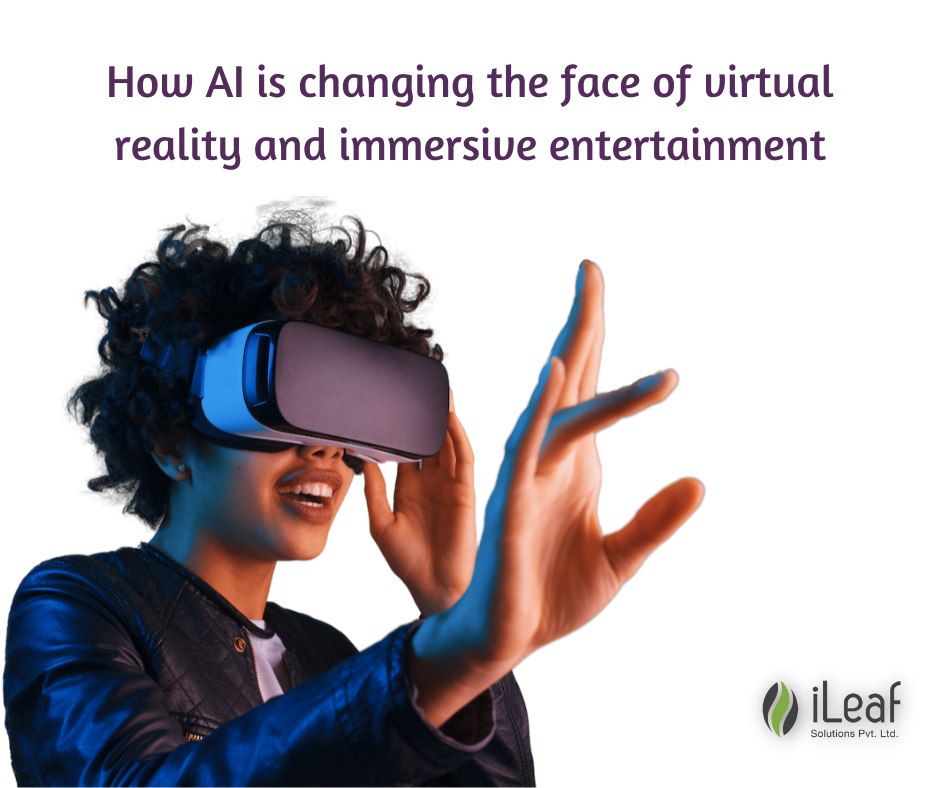How AI is changing the face of virtual reality and immersive entertainment

Virtual reality (VR) and immersive entertainment have come a long way in the past few years, with advancements in technology bringing us closer to truly realistic and immersive experiences. One of the key drivers of this progress has been the use of artificial intelligence (AI) to enhance the capabilities of VR and immersive entertainment.
At its core, AI is about teaching machines to learn from data and make predictions or decisions based on that data. In the context of VR and immersive entertainment, this can take many different forms, from enhancing the realism of virtual environments to creating more realistic interactions between users and virtual objects.
One of the most important ways that AI is changing the face of VR and immersive entertainment is through its ability to generate realistic and dynamic environments. This is especially important in gaming, where players expect increasingly realistic and engaging environments that can adapt to their actions and decisions. AI can be used to create environments that are procedurally generated, meaning they are generated on-the-fly based on a set of rules and algorithms. This allows for virtually infinite variations in the environment, keeping gameplay fresh and engaging.
Another key area where AI is having a big impact on VR and immersive entertainment is in natural language processing (NLP). NLP is the field of AI that focuses on teaching machines to understand and respond to human language. In VR and immersive entertainment, NLP can be used to create more realistic and engaging interactions between users and virtual characters or objects. For example, a VR game could use NLP to enable players to have natural conversations with virtual characters, rather than relying on pre-scripted dialogue.
AI is also being used to enhance the realism of virtual characters in VR and immersive entertainment. This is achieved through a combination of computer vision and machine learning, which allow machines to learn how to create more realistic animations and movements for virtual characters. For example, AI could be used to teach a virtual character to respond to a user's movements in real time, creating a more immersive and interactive experience.
One of the biggest challenges in VR and immersive entertainment is the need for high-quality content. Creating realistic and engaging environments, characters, and interactions is a time-consuming and expensive process, and this has limited the availability of high-quality VR and immersive content. AI can help to address this challenge by automating many of the tasks involved in creating content, such as 3D modeling, animation, and rendering. This can significantly reduce the time and cost required to create high-quality content, making it more accessible to developers and consumers alike.
AI can also be used to improve the performance and efficiency of VR and immersive entertainment systems. For example, AI algorithms can be used to optimize the rendering process, ensuring that virtual environments are displayed as smoothly and accurately as possible. This is especially important in VR, where even minor delays or glitches can break the immersion and spoil the experience for users.
Finally, AI is being used to enhance the social aspects of VR and immersive entertainment. Social VR platforms like Facebook's Oculus Rooms and AltSpaceVR are already enabling users to interact with each other in virtual environments, but AI could take this to the next level. For example, AI could be used to create virtual assistants that can help users navigate virtual environments or to enable users to collaborate on tasks or games in real time.
In conclusion, AI is already having a significant impact on the development and deployment of VR and immersive entertainment, and this is only going to increase in the coming years. By enhancing the realism of virtual environments, improving interactions between users and virtual objects, and automating content creation, AI is helping to create more immersive and engaging experiences for users. As AI technology continues to evolve, we can expect to see even more exciting developments in the world of VR and immersive entertainment.














